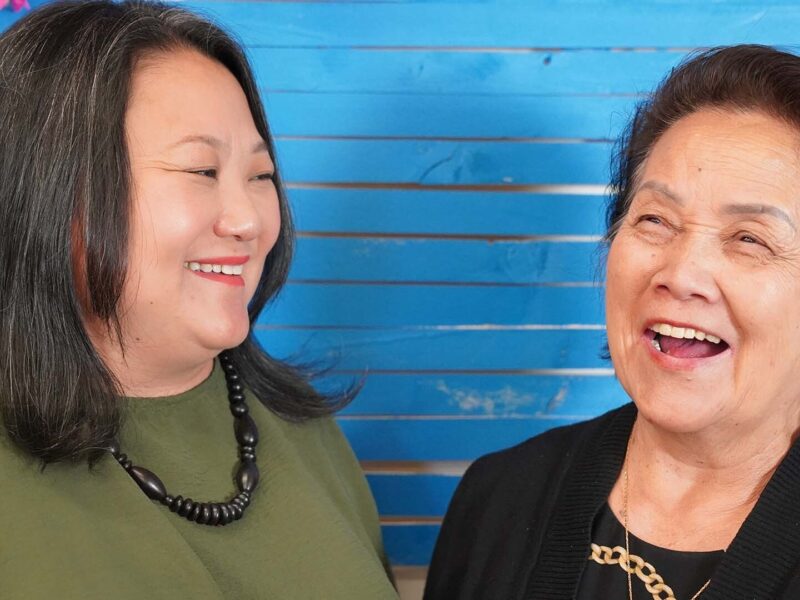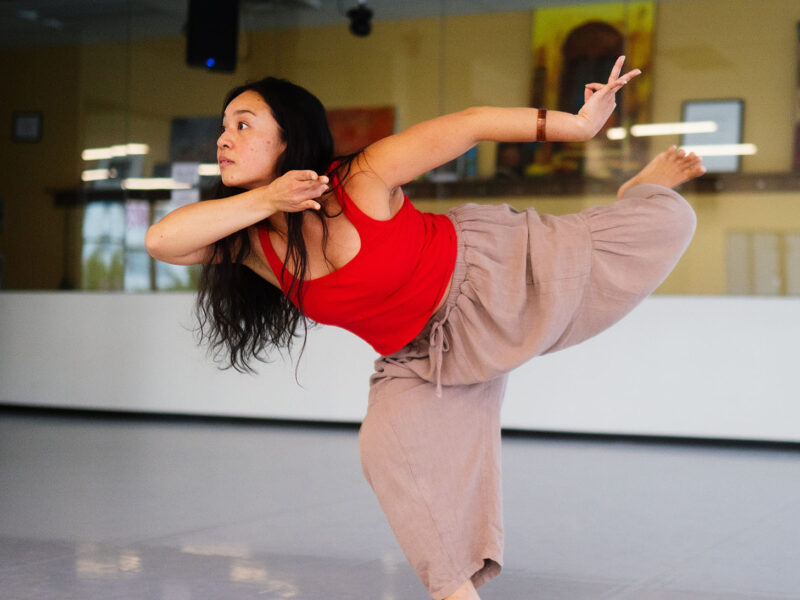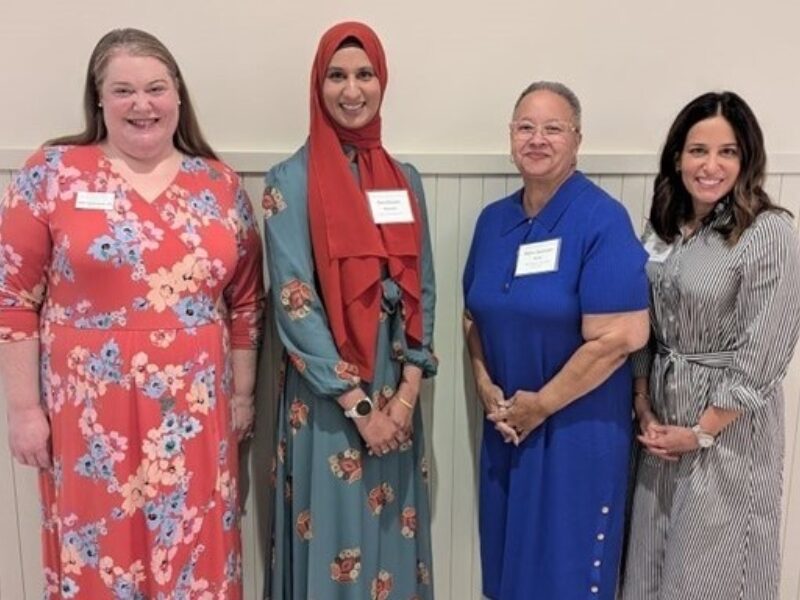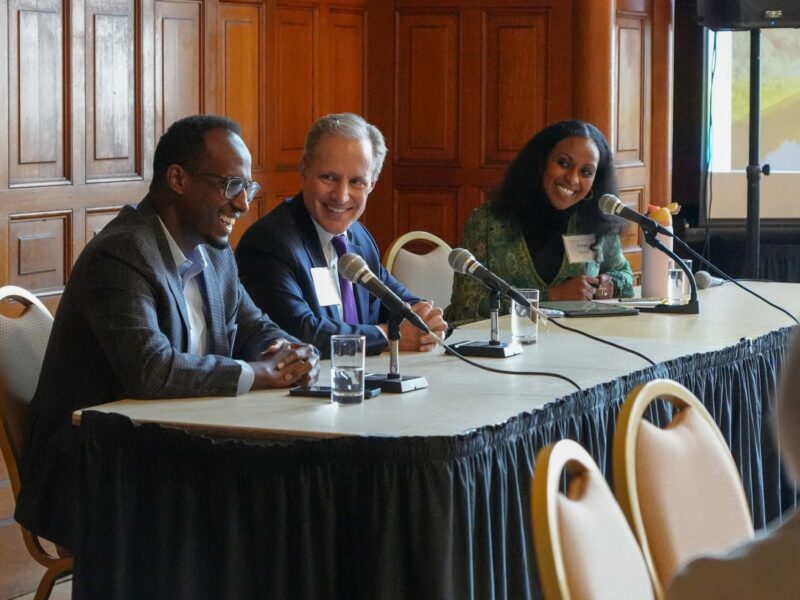Donors join the conversation about mental health at the October Giving+Together event.
In October, a group of donors joined the Saint Paul & Minnesota Foundation at Midland Hills Country Club for one of our Giving+Together events—Pathways to Mental Health.
Ann Mullholland, executive vice president of the Foundation, facilitated the event’s panel of experts, including:
- Sue Aderholden, executive director for NAMI Minnesota (National Alliance of Mental Illness)
- Keith Allen, manager of Community Collaborations at Fairview Health Services and part of the East Side Mental Health and Stress Resilience Partnership
- Dr. Felicia Washington Sy, executive director of RECLAIM!
- Pahoua Yang, vice president of Community and Mental Health & Wellness at Amherst H. Wilder Foundation
Sue Aderholden, executive director for NAMI Minnesota, opened the event by covering several statistics and facts about mental illness. NAMI Minnesota is a nonprofit organization dedicated to improving the lives of children and adults with mental illnesses and supporting their families, professional and the community by providing education, support and advocacy.
“We all have mental health,” Sue said. “It’s on a continuum. It’s our ability to handle our emotions and the everyday stressors in life.”
Learning about Mental Illness

She went on to explain how mental illness appears and can be treated, which included that it:
- Is a disruption of a person’s thinking, feelings, mood and ability to relate to others
- Is on a continuum, with fluctuating symptoms
- Is treatable
- Is biological in nature, affects brain structure & chemistry
- Affects people no matter age, race, ethnicity, profession, political party, sex, religion, etc.
- Includes causes such as genetics, environmental, negative life experiences (trauma)
She then talked about the statistics of mental illness and who is impacted, citing the following:
- One in five people will experience a mental illness during their lifetime
- The prevalence rate is increasing
- 50 percent of all mental illnesses emerge by the age of 14 and 75 percent by the age of 24
- Less than 50 percent of people actually receive treatment
- Over 50 percent of people who are homeless have a mental illness
- Youth with mental illnesses have the highest drop-out rate
- Adults with mental illnesses have the lowest employment rate
- Over 60 percent of adults and 70 percent of youth in the criminal justice system have a mental illness
- Over 780 people died by suicide in Minnesota in 2017
Sue also shared that of the different forms of mental illness, anxiety, followed by depression, are the most common—and are often intertwined.
“We all have mental health. It’s on a continuum. It’s our ability to handle our emotions and the everyday stressors in life.”
Sue Aderholden

The panel went on to address the importance of mental health education and discussed how their respective organizations are working to make an impact.
Keith Allen explained that the East Side Mental Health and Stress Resilience Partnership believes that community members are in the best position to define and develop culturally responsive solutions to improve their health. By working with more than 20 community organizations on the East Side, they have been able to build health equity through intentional, inclusive partnerships.
“Health begins where we eat, pray, love and worship,” said Keith. “In order to change this landscape, we must start providing ways for crisis prevention rather than just intervention.”
By training community members on the importance of sustainable work to improve health and well-being, Keith hopes the East Side Mental Health and Stress Resilience Partnership can establish a community where prevention is no longer a luxury that’s hard to obtain.
For Dr. Felicia Washington Sy, improving mental health starts when we have a better understanding of ourselves and how to handle our emotions. At RECLAIM! she uses the practice of mindfulness, which she claims is “noticing awareness without judgment” and the ability to make “decisions from wisdom, rather than reactivity.”
RECLAIM! provides mental health support youth ages 13 – 25 who are marginalized because of their gender identity, gender expression and/or sexual orientation.
According to Felicia, RECLAIM! serves as a beacon, where queer and gender-nonconforming counselors and therapists provide mental health support to queer youth.
“It's not enough for us to be culturally competent, said Felicia, “but we must also explore how we are culturally responsive.”
The Wilder Foundation is one of eight Certified Community Behavioral Health Clinics (CCBHCs) in the state of Minnesota. Wilder’s Community Mental Health and Wellness outpatient clinic in Saint Paul offers mental health services for children, adults and families.
For Pahoua Yang, changing the mental health system means putting money toward impact and policy. In addition to providing out-of-school time counseling and mental health care to youth, Wilder also received funding to do mental health work in Saint Paul Public Schools.
“It’s about changing the environment and how we think about it as adults in this space,” said Pahoua.
The panel closed with a Q&A session, giving everyone who attended the opportunity to share stories, concerns and suggest changes to improve the current state of the mental health system.
Minnesota Nonprofits Providing Mental Health Services
If you are interested in exploring other nonprofits across Minnesota that provide mental health services, consider learning about the following organizations.
Join Us
Interested in joining us for our next event? Contact your philanthropic advisor for details about upcoming Giving+Together events.










